AJN News
VIDEO. Identidades destruidas: los nombres de las víctimas de Auschwitz-Birkenau en un archivo sin precedente
Agencia AJN.- El museo que funciona donde se emplazó el campo de exterminio alemán posee un archivo repleto de datos de aquellos que fueron masacrados por el régimen nazi. Más de cuatro millones y medio de nombres se encuentran identificados en las páginas del repositorio, que hace años se está digitalizando para garantizar que se siga sumando información y para preservar la memoria de los asesinados. Hasta allí llegan miles de visitantes de todo el mundo, que en sus páginas encuentran familiares que, en muchos casos, desconocían.
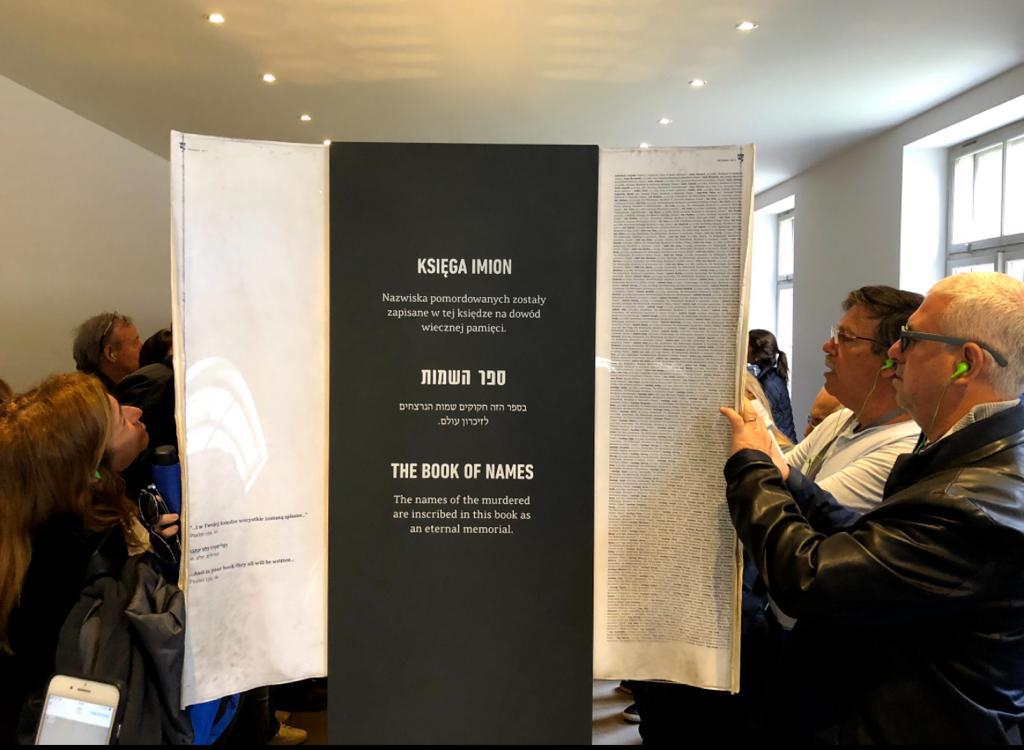
Agencia AJN.- POLONIA (Enviado especial) Hace años que desde el memorial-museo Auschwitz-Birkenau se trata de reunir toda la información posible sobre las víctimas del genocidio nazi durante la Segunda Guerra Mundial. En particular, la institución busca identificar a todos aquellos que fueron masacrados, principalmente a aquellas familias que fueron exterminadas por completo y de las que no queda nadie que los recuerde, o que al menos sepa que existieron. Hoy en día, se cuenta con un total de 4 millones y medio de nombres identificados.
Hoy en día el archivo es visitado por personas de todo el mundo y es un sitio de interés a nivel global. Buceando al interior de las páginas que ocupan el centro de la sala (ver video), los visitantes pueden buscar sus apellidos y encontrar allí nombres de antepasados que llegaron a los campos de exterminio, con su ciudad y país de origen. La sorpresa y la emoción se hacen presente cuando, en muchos casos, se encuentran más familiares de los que conocían.
Se pretendía un exterminio total: además de la aniquilación física en cámaras de gas y hornos crematorios, el plan también incluía el exterminio de la identidad y la memoria de las víctimas. Antes de la liberación del campo en enero de 1945, las autoridades de las SS ordenaron la destrucción de toda la documentación creada durante la operación de Auschwitz. Según las estimaciones, se destruyó más del 90% de los materiales de origen.
En este momento, la base de datos existente, que contiene información sobre las personas localizadas en su paso por Auschwitz, se está fusionando con los datos de las listas de transporte. Por consiguiente, ya en mayo de 2020, los resultados de la búsqueda en www.auschwitz.org se enriquecerán con más de 420.000 nombres de judíos deportados al campo.
Uno de los objetivos más importantes del Repositorio Digital de Auschwitz-Birkenau es reunir la documentación dispersa de las listas de transporte a los campos. «Unos 900.000 judíos deportados a través de trenes masivos desde la Europa ocupada por los alemanes fueron asesinados en las cámaras de gas inmediatamente después de llegar al campo, sin registrarse. Al no contar con esos registros posteriores del campo, no hay información sobre ellos. Las listas de transporte pueden ayudarnos a establecer sus nombres», dijo el Director del Museo, Piotr M. A. Cywiński.
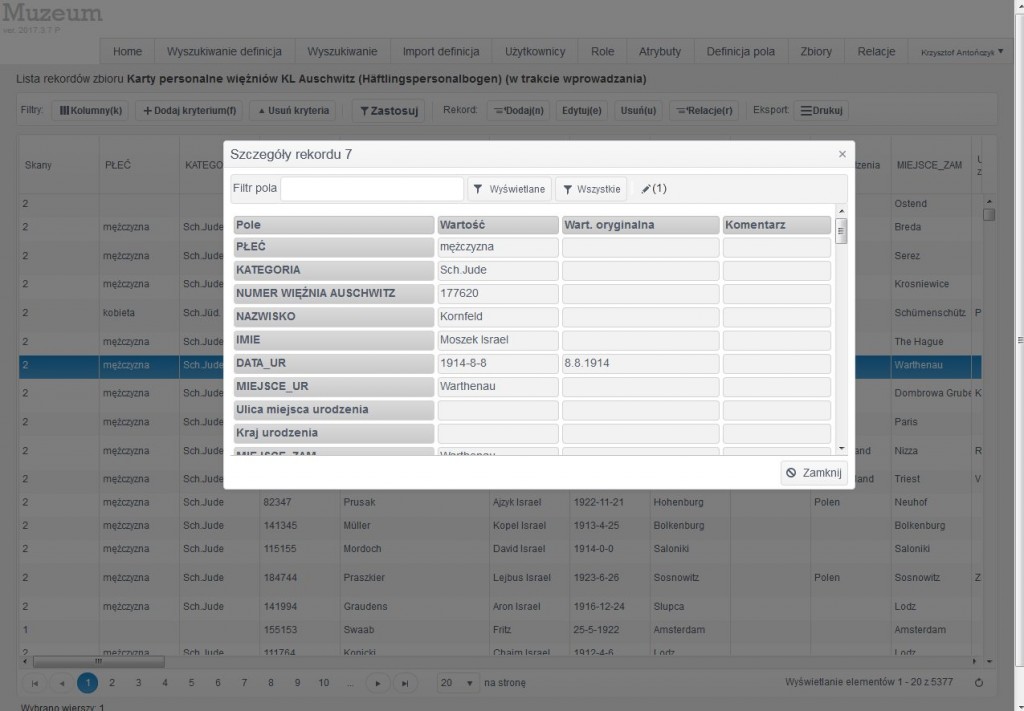
El Repositorio Digital elaborado por el museo. Foto: www.auschwitz.org
«En sus relatos, los antiguos prisioneros hablan a menudo de la convicción que tenían en el campo, de que la verdad nunca pasará más allá de los cables, sus nombres serán olvidados y, sin embargo, cada persona tiene un nombre. Nuestra misión es simple: devolver a nuestra memoria colectiva tantos nombres como sea posible», enfatizó.
«Durante más de 20 años, hemos estado llevando a cabo un tedioso trabajo de digitalización, con el fin de preservar los datos de las fuentes y archivos y, por otra parte, restaurar los nombres de las víctimas. El trabajo del Depósito Digital no se centra en los documentos, sino en las personas, los nombres, los números, las fechas de nacimiento y cualquier otro rastro, a menudo muy frágil, de las personas. Aquellos que fueron arrancados de su vida cotidiana por la violencia, que fueron llevados al sufrimiento y a la muerte. Los registros del Depósito Digital de los nombres de los prisioneros de Auschwitz no sólo sirven como fuente de actividades de investigación y educación, sino sobre todo para conmemorar a todos los encarcelados y asesinados», subrayó Krzysztof Antończyk, jefe del Repositorio Digital.
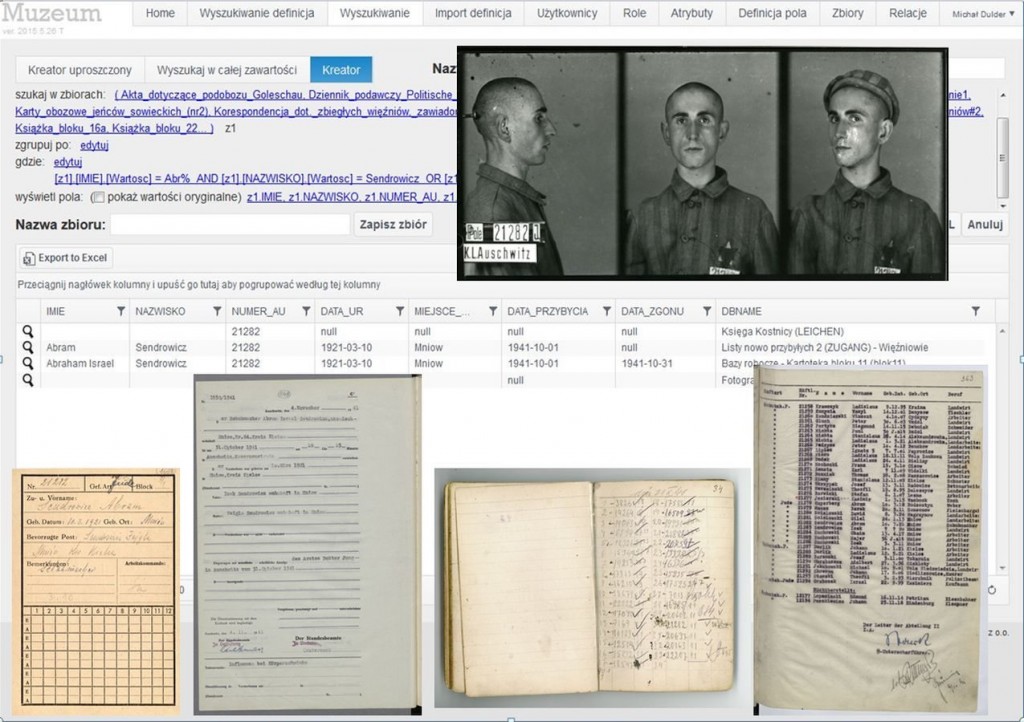
Foto: www.auschwitz.org
«El repositorio y el archivo cooperan con especialistas en interpretación. La información es complementada regularmente por los familiares de los prisioneros, y los particulares siguen donando documentos, fotografías o escaneos. Gracias a los contactos de larga data y al intercambio de experiencias con otros monumentos e instituciones que conmemoran a las víctimas de la Segunda Guerra Mundial, se siguen obteniendo nuevos datos sobre los prisioneros y deportados, se reconstruyen sus identidades y se completa la documentación. Mediante este intercambio de información, los trabajos de investigación se han vuelto más completos y complementarios», señaló Antończyk.
AJN News
Argentina. Milei reflected on the Torah: «Those who play in all directions are the worst»
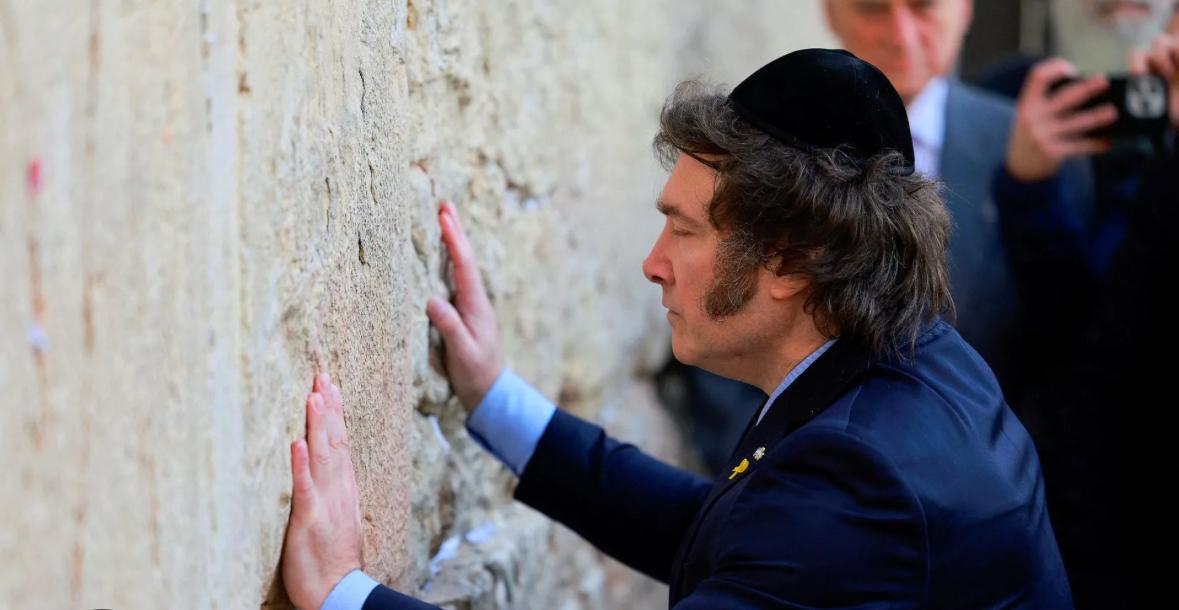
Agencia AJN.- Argentinian President, Javier Milei, once again resorted to the Torah, the sacred book of Judaism, to make a «reflection», such is the title of a post on his personal profile on the social network X that alludes to the political situation in his country, although in general terms.
On this occasion he referred to the current parashah (weekly reading portion of the Torah), Toldot, corresponding to the Book of Breishit (Genesis), which extends from perek (chapter) 25 and pasuk (verse) 19 to 28:9.
«The parasha says that Rivka, the wife of Yitzchak (Rebekah and Isaac), was worried when she was pregnant, because when she passed by a place of sanctity she felt that her son wanted to go there and when she passed by an impure place, too. And she was worried. and she went to consult with a prophet. The prophet answered her: you have two sons in your womb. One will be a leader of the people of Israel (Yaakov, Jacob) and another Esav who will be very evil, and will want to harm Yaakov and his offspring. And then she calmed down,» said the South American president.
«The question: does Rivka calm down after she is sure that she has a completely evil son, and before when she thought she had only one son she didn’t know what he would be like she was very disturbed?,” he asked.
«The answer: Rivka, when she thought that she had a single son, that he was LUKE without ideology and played for both sides, that worried her a lot. But then she found out that she has two, and it is clear that one plays for one side and the other completely the other way around, she calmed down,» Milei answered.
«Moral: Those who play for all sides are the worst of all, even much worse than the one who is completely evil. Because the one who is evil and shows himself as such, we have identified him. On the other hand, the other behaves like a good person and we never know what his attitudes and his evil intentions are,» he concluded, before saying goodbye with a «SHABAT SHALOM.»
AJN News
Argentina | Holocaust and Heroism Day. President Milei’s major speech against anti-Semitism and terrorism
»Therefore, in keeping with our history and with what we consider to be true, we ratify today our spirit of friendship and collaboration with the State of Israel and we offer Argentina’s candidacy for the International Presidency of the IHRA», expressed Milei.
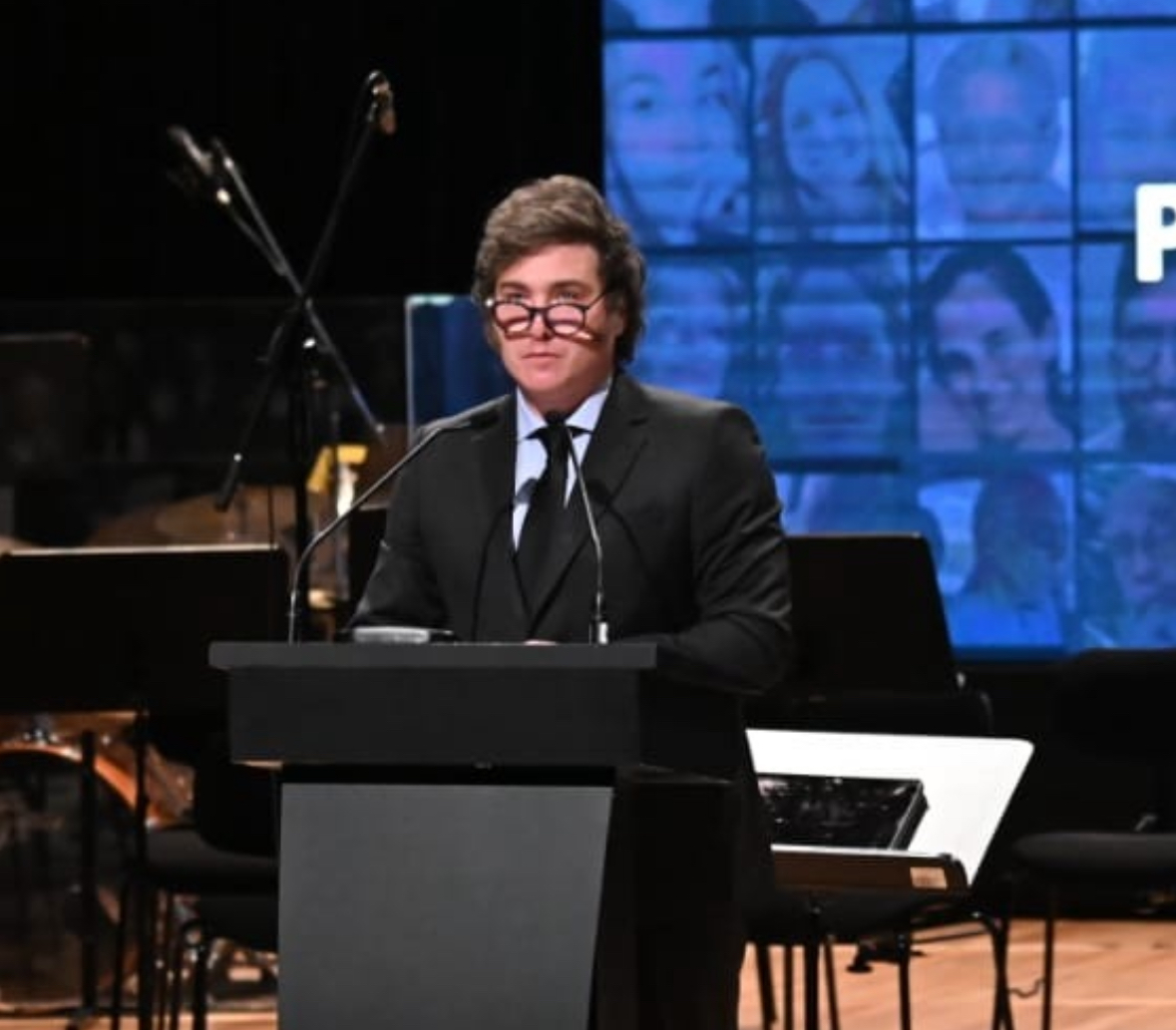
Agencia AJN.- At an event organised on Wednesday by the Delegation of Argentinean Israelite Associations (DAIA) and the Holocaust Museum of Buenos Aires to commemorate Holocaust and Heroism Day, the 81st anniversary of the Warsaw ghetto uprising, President Javier Milei announced ‘Argentina’s candidacy for the presidency of the International Holocaust Remembrance Alliance’ (IHRA).
The IHRA is an intergovernmental organisation of 35 states whose aim is to combat acts of anti-Semitism, intolerance and discrimination that can lead to genocides such as those experienced by humanity in the 20th century.
The main event was also attended by Nazi survivors, relatives of people kidnapped by Hamas, national, provincial and municipal authorities, judges, political leaders, diplomats, representatives of different religious denominations, community leaders, among others.
Argentina. Discurso y anuncio del presidente Javier Milei en el acto del Día del Holocausto organizado por el Museo del Holocausto y la DAIA @JMilei @DAIAArgentina @museoshoa #HolocaustRemembranceDay #YomHaShoah @Isaac_Herzog @AmbEyalSela @netanyahu #israel @israelmfa… pic.twitter.com/8uQVSq1inE
— Agencia AJN (@AgenciaAJN) May 9, 2024
President Milei’s full speech:
At the outset, I would like to pay tribute to Lior Rudaeff, an Argentinean living in Israel who was kidnapped and murdered by the Hamas terrorist organisation on 7 October. I would like to extend my sincere condolences to his family and loved ones, and call for the return of his body so that he can be given a proper farewell by them. Baruch Dayan Haemet to him and to all the victims of Islamic terrorism in Argentina and the world.
Today more than ever there can be no doubt that the scourge of Islamic terrorism on Israel and the Jewish people is not a problem alien to us Argentines, but one that affects us directly. First, because 21 Argentines were murdered by Hamas on that tragic day, 20 more Argentines were kidnapped and today, seven months after the attack, there are at least eight compatriots for whom we still do not know whether they are still among us or whether they have passed on to another life. Secondly, because when a battle is fought between good and evil, between freedom and oppression, between civilisation and barbarism, taking sides is not one option among others but a moral obligation.
Today we are here to remember perhaps the greatest tragedy in the history of mankind, we are doing so under the name of Holocaust and Heroism Day, and I would like to pause to discuss with you this second concept, heroism. Because I believe that the heroism and virtue of men is the flip side of tragedy, it is the only thing that can make the righteous prevail over those who seek to oppress them and rob them of their freedom. And because I believe that in times of darkness, when speaking out is costly and when the majority prefer to turn their backs on righteousness for their own convenience, promoting virtue is a commandment and a duty.
We remember today the Jewish resistance in the Warsaw ghetto, where 300,000 souls were imprisoned in inhumane conditions for three years by the Nazi regime, only to be transferred to extermination camps as we all know. We remember that one day in 1943 the prisoners took what few weapons there were and put up a fight. For 27 days they fought for their freedom, under unequal conditions and with virtually no chance of success. They fought for their freedom, which is a just cause in every time and place, and they chose to die fighting rather than be killed.
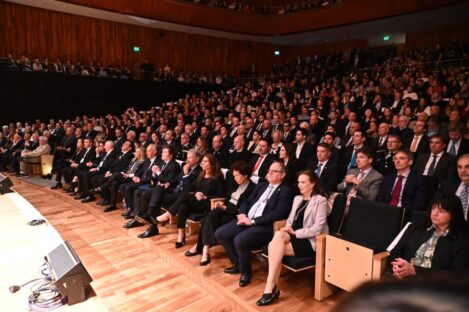
The struggle for freedom against adversaries always more powerful than themselves has been a constant in the history of the Jewish people, and has forged for them a heroic spirit, a warrior spirit. This is already clear in the sacred scriptures, it is seen in the exodus of the Jewish people from Egypt, escaping from the yoke of Pharaoh, leaving behind slavery to embrace freedom. The revolt of the Maccabees is clear when, despite being in a distinct minority, the least against the most, the weak against the powerful, they drove out the Greek invader and recaptured Jerusalem. It was never the number of soldiers that mattered, but the forces that came from heaven.
Fighting battle upon battle for over 4,000 years, though many were lost and though the temple in Jerusalem was destroyed twice, the Jewish people persisted. And today again, being under threat, surrounded by enemies who pursue a goal akin to the goal of those who imprisoned more than 300,000 souls in the ghetto 80 years ago, because the intention of Hamas on 7 October was the same as that of the Nazis, to directly and deliberately murder innocent people, if they did not do it on a larger scale, it was not because they did not want to but because they could not.
Today, we see in parallel to these sad events a recognition in the world of both intolerant Islamic fanaticism and anti-Semitism in its different versions. And to make matters worse, we see how all these phenomena are not perceived by the free world with the sharp condemnation and firm action they demand, but with discomfort and ambiguous gestures. I look around me at the rest of the leaders of the free world, especially the leaders of the great nations that should be the pillars of global freedom, and I see indifference in some and fear in others to stand on the side of truth.
Today the world is silent while there are still more than 100 hostages suffering, eight of whom are fellow Argentines. Not to mention the blatant anti-Semitism that has become commonplace on the campuses of educational institutions entrusted with the professional and human training of the West’s elites. I believe that the heroism we talk so much about and want to promote is also to defend the truth, to speak the truth when around us the truth is silenced.
That is why when the world is silent, we have an obligation to speak out, because it is the silence of the good that allows the barbarity of the bad, and because speaking out, looking straight and not turning a blind eye, even though it is difficult, even though for many it is inconvenient, is the only way to ensure that the Shoah is not repeated.
Emotivo acto del Día del Holocausto en Argentina con la presencia del presidente @JMilei organizado por @museoshoa y @DAIAArgentina.@JKnoblovits @CancilleriaARG @mondino @IsraelMFA @JonathanPeled @Isaac_Herzog @netanyahu @AmbEyalSela @LiorHaiat @BringThemHome23 #Israel pic.twitter.com/4gau1RIqiR
— Agencia AJN (@AgenciaAJN) May 9, 2024
And because God will not accept justifications or exculpations when it comes to rendering his ultimate judgement, we will not be able to tell him what, but I could not or what virtue was not convenient at the time, he will not judge us for what we thought, believed or wanted, but for having done the right thing in life. That is why today remembering the Shoah, remembering heroism and denouncing Islamic terrorism is an obligation, because without heroes we are defenceless in the face of an ever darker and longer night.
In closing I would like to thank Marcelo Mindlin, Jorge Knoblovits and the rest of the authorities of the DAIA and the Holocaust Museum for organising and inviting me to be part of this commemoration at such a difficult time for the Jewish people that demands that we all work back-to-back.
I also want to tell you that Argentina is a historic friend of the Jewish people. We were the first country in the region to recognise the existence of the State of Israel and today we proudly have the largest Jewish community in Latin America and the tenth largest in the world. Together with the Jewish community, we have suffered the cowardly attacks by the Iranian government, not only on the Jewish-Argentine community, but on the Argentinean people as a whole, which, thanks to the persistent efforts of those who seek the truth, are now, three decades later, beginning to be clarified.
Therefore, in keeping with our history and with what we consider to be true, we ratify today our spirit of friendship and collaboration with the State of Israel and we offer Argentina’s candidacy for the International Presidency of the IHRA (video), an institution whose value takes on new relevance and urgency every day, at a dark time, when the rest of the world is turning its back on Israel, they will find us at their firm side always.
Finally, and lastly, I would like to conclude with a letter from Rabbi Samson Raphael Hirsch, which seems to me to be very pertinent to the times we are living in and which should be present in our lives every day. This letter says: ‘Those who are convinced that their opinions are true and correct must express them constantly and at every opportunity with candour, and without regard to the degree of support they have and the level of opposition they will encounter. Lies need supporters to succeed; lies need the authority of majorities to fill what they lack in the rightness of their argument. Truth, on the other hand, will always win out in the end. Even if it takes time, noble, courageous and pure, expressed with all the ardour of conviction and with all the clarity of a sure conscience, expressed again and again on every occasion, it will eventually win the respect and esteem of even those who refuse to accept it. The only truth that has been lost without the possibility of regaining it is that whose possessors have not the courage to speak frankly of it. Truth was never defeated by the forces of resistance, it was only defeated when its possessors were too weak to defend it’.
Thank you very much.
-
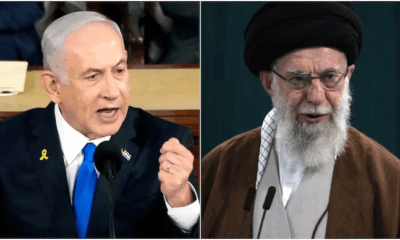
 Guerrahace 23 horas
Guerrahace 23 horasNetanyahu: ‘‘Atacaremos todas las instalaciones nucleares de Irán, tenemos la capacidad para hacerlo’’
-
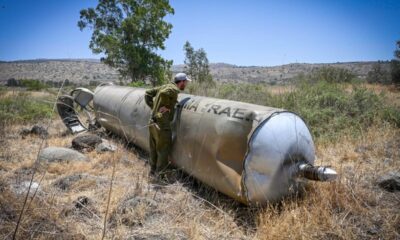
 Guerrahace 22 horas
Guerrahace 22 horasFragmentos de bombas de racimo iraní generan temor en Israel: ¿el misil iraní llevaba múltiples bombas?
-
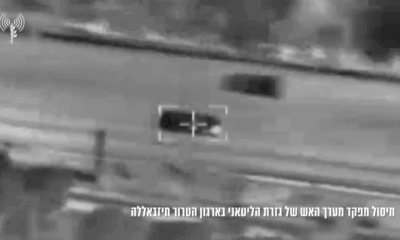
 Medio Orientehace 4 horas
Medio Orientehace 4 horasEliminado en el sur del Líbano el comandante de artillería de Hezbollah responsable de ataques contra Naharía y Haifa
-

 Guerrahace 23 horas
Guerrahace 23 horasLa aerolínea de bandera israelí El Al operará ‘‘vuelos especiales para emergencias médicas’’ el día del descanso para repatriar a sus ciudadanos
-

 Guerrahace 24 horas
Guerrahace 24 horasNetanyahu aseguró que Israel destruyó más de la mitad de los lanzamisiles de Irán
-

 Guerrahace 22 horas
Guerrahace 22 horasEE.UU.: Irán podría producir una bomba nuclear en «un par de semanas»
-
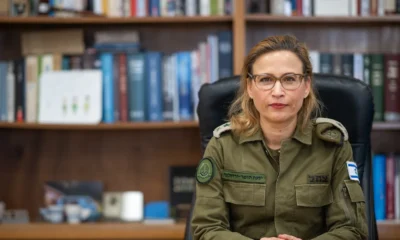
 Guerrahace 23 horas
Guerrahace 23 horasLa general que determina qué objetivos pueden ser atacados por Israel
-
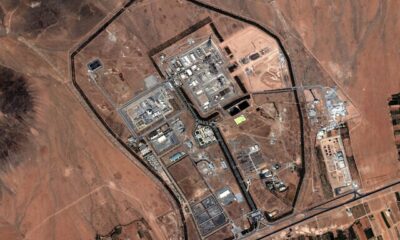
 Guerrahace 21 horas
Guerrahace 21 horasIrán. AIEA: El reactor de agua pesada de Arak fue dañado por un ataque israelí


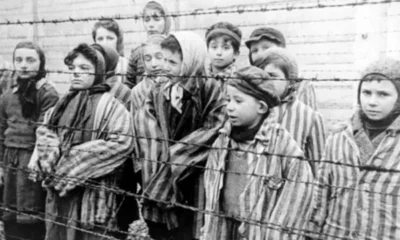

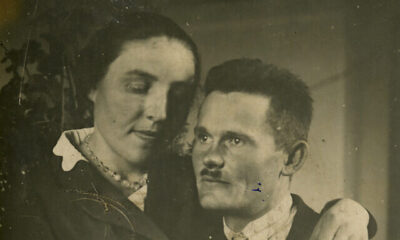

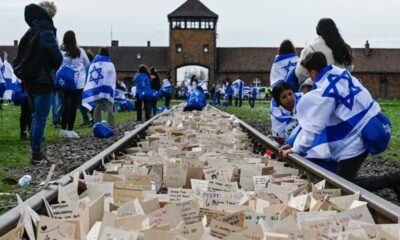

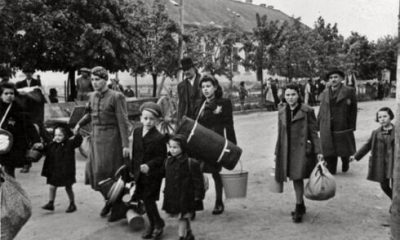

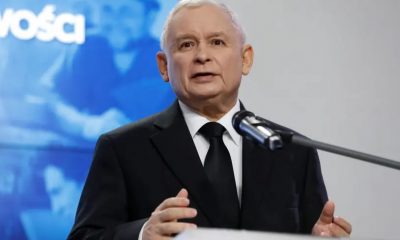




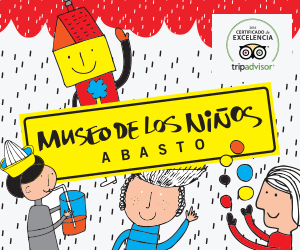
 Suscribite al Whatsapp!
Suscribite al Whatsapp!